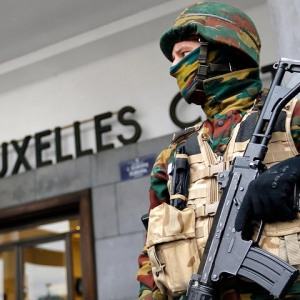
The terrorism landscape looks rather different today than it did when al-Qaeda operatives, some based in Europe, planned and carried out the September 11 attacks. Such operations are now far less likely due to security improvements, but the international community still faces diverse and globally dispersed terrorist threats. Islamic State cells continue to carry out attacks in Syria, Iraq, and across Africa. Al-Qaeda affiliates thrive in Syria and Somalia, and officials fear the group could gain a new foothold in Afghanistan once the coalition withdraws. Meanwhile, anti-government militias, white identity terrorists, and extremists motivated by racial or ethnic extremism pose immediate domestic threats to countries on both sides of the Atlantic.
To discuss how U.S.-EU counterterrorism cooperation has progressed over the past two decades and where it has room for further improvement, The Washington Institute is pleased to announce a virtual Policy Forum with senior European security officials Gilles de Kerchove and Olivier Onidi.
Watch a live webcast of this event starting at 4:30 p.m. EDT (2030 GMT) on Thursday, July 15, 2021.
Gilles de Kerchove is a senior Belgian official who has served as the EU counterterrorism coordinator since 2007. He previously served as director of justice and home affairs in the EU Council Secretariat.
Olivier Onidi is deputy director-general for migration and home affairs at the European Commission, where he has been in charge of the directorate’s work on security issues since December 2016. His previous assignments include coordinating commission-wide efforts related to the Central Mediterranean route and the refugee crisis.
washingtoninstitute
